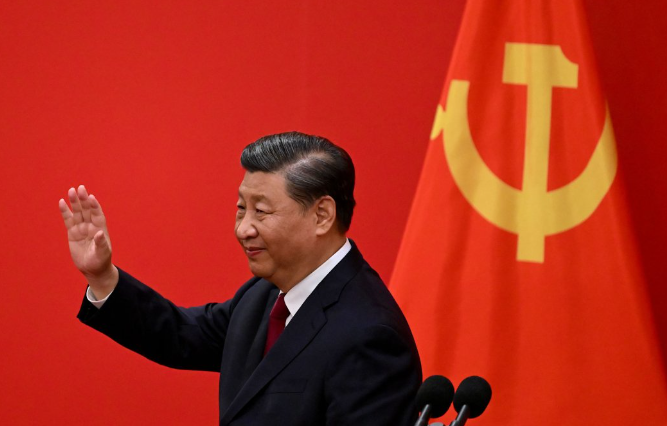China’s Communist Party Gains More Control
In a significant move, China’s parliament revised the State Council Organic Law on March 13, 2023, effectively granting the Communist Party more executive control over the State Council, China’s cabinet. This amendment, which passed with an overwhelming majority during the closing day of the National People’s Congress in Beijing, marks the first revision of the law since 1982.
Erosion of State Council’s Executive Authority
The amended law is the latest in a series of measures that have gradually eroded the executive authority of the State Council, led by Chinese Premier Li Qiang. The State Council nominally oversees China’s 21 government ministries and local governments. However, legal experts suggest that this amendment continues a trend of transferring more power from the state into the Party’s hands, leaving the government to faithfully implement Party directives.
Emphasis on Party Central Committee’s Authority
The newly added articles in the amended law stress that the State Council must “resolutely uphold the Party Central Committee’s authority and its centralised and unified leadership” and follow Xi Jinping Thought, the party’s name for the president’s signature ideology, which covers subjects ranging from diplomacy to culture. This emphasis on the Party’s authority and ideology further consolidates the Communist Party’s control over the State Council.
As per legal experts, the amendment is a “significant shift in the reorganization of executive authority in China.” as the revision is intended to “deepen reform of party and state institutions” and “fully implement the Constitution,” which was changed in 2018 to reassert the Party’s leadership over everything. This move further solidifies the Party’s control over state organs and emphasizes its role in decision-making.
Another expert described the amendment as “yet another sign that the Party is both increasing its overt control over state organs and wants to be seen as fully in charge.”
Cancellation of Premier’s Post-Parliament News Conference
In a notable departure from tradition, the premier’s post-parliament news conference, one of the most widely followed events on Beijing’s economic and policy calendar, was cancelled for the first time in three decades. This move further underscores the diminishing role of the State Council and the premier in China’s governance structure.
Xi Jinping’s Consolidation of Power
Since taking power in 2012, President Xi Jinping has established several new central party committees overseeing multiple ministries that report directly to him. Some of these committees even encroach on economic and financial policy, traditionally viewed as falling under the premier’s remit. This consolidation of power has further weakened the State Council’s authority and increased the Party’s control over various aspects of governance.
Government Reorganization and Amended Working Rules
In 2022, China unveiled a sweeping government reorganization that created a new Party entity to oversee some ministries. Shortly afterward, the State Council amended its working rules to clarify that executive decision-making power lies within the Party. Since the new working rules passed, the State Council no longer holds weekly meetings, instead gathering two or three times a month. Ruling Communist party (CCP) of China passed a ‘historical resolution’ to praise president’s decisive significance in rejuvenation of China.
Month: Current Affairs - March, 2024
Category: International / World Current Affairs






